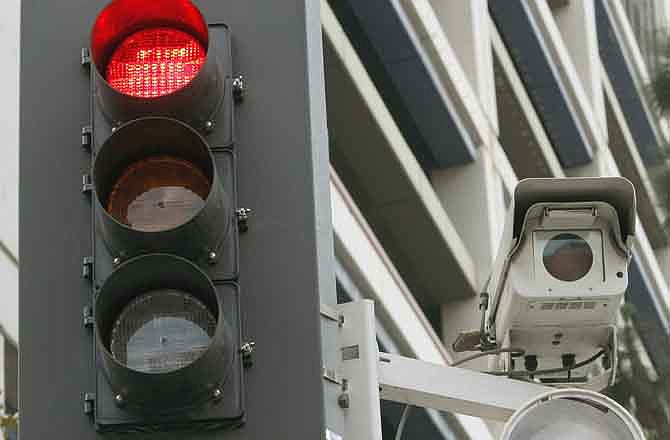ST. PETERS, Mo. (AP) - Red-light cameras are a hot topic again in the St. Louis area following the arrest of a St. Charles County councilman over a ticket from last summer.
Republican Councilman Joe Brazil isn't disputing the ticket he received in St. Peters, but he tells the St. Louis Post-Dispatch (http://bit.ly/126NOMc) that it's overkill for a city to use police time on arrests for offenses that don't add penalty points to a driver's license under Missouri law. Red-light camera violations fall into that category.
"I think it's a complete waste of police resources," Brazil said. "They're overdoing it."
Brazil said he mailed in the fine before his arrest, but St. Peters spokeswoman Lisa Bedian said the city has no record of receiving Brazil's check. Bedian said the city issues arrest warrants whenever someone doesn't show up for a court date on any charge, including red-light violations.
Other cities in the St. Louis region take different approaches, and many don't issue arrest warrants for red-light violations.
The cameras have spurred debate since they have been increasingly used in the St. Louis area over the past few years. Companies install the equipment in exchange for a portion of the fines. Opponents see it as an unfair money-grab, while proponents argue that the cameras help save lives by discouraging drivers from skirting through red lights.
Wentzville, like St. Peters, issues warrants for nonpayment of red-light violations. Police spokesman Paul West said the decision may depend on the type of photo taken by the camera system. Wentzville and St. Peters both use cameras that capture the face of the driver, rather than simply a photo of the vehicle license plate.
"If I can't say who is driving, how am I going to know who to arrest?" West said.
Brazil was pulled over for a traffic stop last month. The officer told him there was a warrant for his arrest, frisked him, put him in the back of the police vehicle and drove him to police headquarters, where he spent about an hour in a holdover cell. Brazil said he'd mailed a cashier's check to pay his $110 fine before his arrest.
Those caught on red-light cameras are first sent a summons giving them the option of paying the $110 fine or going to court, Bedian said. If they do neither, they get a letter with a second court date and a warning that an arrest warrant will be issued if they don't respond.

